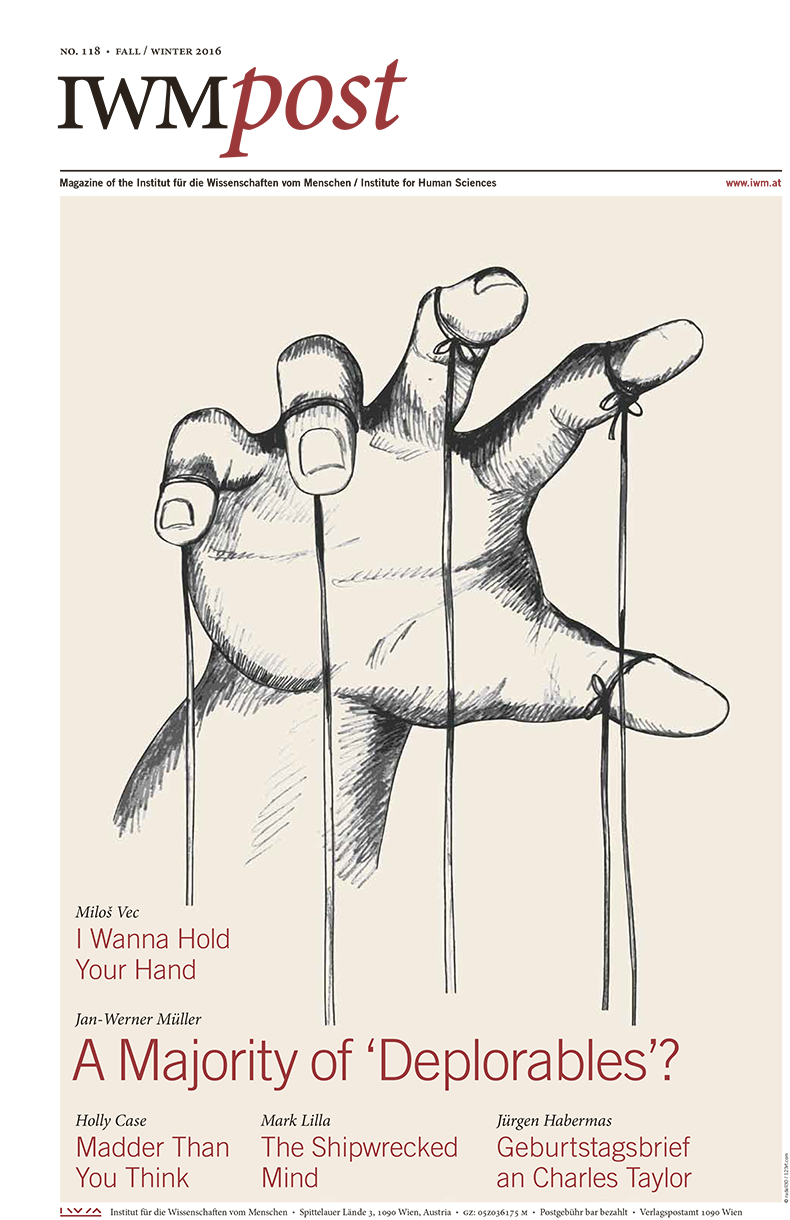According to the the US American intellectual historian Mark Lilla, we live in a reactionary age. The optimism of the last decades has given way to the politics of anger, despair, and resentment. The promise to make one’s country ‘great again’ is drawing disenchanted voters to populists like Trump. Political scientist Jan-Werner Müller examines the likely impact of Trump’s victory on democracy and social cohesion in the US. Women’s rights, too, are under threat by the rise of radical and anti-pluralist forces, as the contributions by María do Mar Castro Varela, Elisabeth Holzleithner, Shalini Randeria, Katha Politt and Mieke Verloo on the occasion of the International Women’s Day 2016 make clear. In this context of a return to more authoritarian social norms, IWM Permanent Fellow and legal historian Miloš Vec examines the debate on the refusal to shake hands by analysing the complex relations between different cultural conventions, gender roles, and legal frameworks.
How diverse cultures and religions can live together peacefully in a pluralist society has been Charles Taylor’s research topic for many years. On the occasion of his 85th birthday, the present issue contains an interview with the distinguished philosopher, as well as a personal congratulation letter from Jürgen Habermas.
The successful first Vienna Humanities Festival, turned the Karlsplatz into an urban salon and attracted nearly 3000 visitors to its 40 free events on a weekend in September. It highlighted the importance of open discussion and dialogue in the overcoming of the key challenges of our age, such as the admission and integration of refugees. This point was also made by the Indian globalization theorist Arjun Appadurai who was a speaker at the festival, as was the historian Holly Case, whose contribution critically examined the history of the ‘insanity defence’ and not just its legal, but also its political dimensions. Two further essays are devoted to the issue of communication. Whereas the Ukrainian writer Serhiy Zhadan discusses the effects of war on language, the two Russian investigative journalists Irina Borogan and Andrei Soldatov analyse the Kremlin’s plans for close future cooperation with China in the field of internet surveillance.
Download the IWMpost 118 as a PDF
Contents
From the Fellows
The Shipwrecked Mind / by Mark Lilla
A Majority of ‘Deplorables’? / by Jan-Werner Müller
China is Ready to Build Putin’s Firewall / by Irina Borogan and Andrei Soldatov
International Law and Multinormativity
I Wanna Hold Your Hand / by Miloš Vec
Women’s Day 2016
A Backlash Against Women’s Rights? / Interviews by Agnieszka Wądołowska with Shalini Randeria, Mieke Verloo, Elisabeth Holzleithner, María do Mar Castro Varela and Katha Pollitt
Political Salons
Events in Retrospect
Humanities Festival
Resumé / by Isabel Frey
Flows of Globalization / Report by Isabel Frey
Madder Than You Think / by Holly Case
Varia
Ukraine in European Dialogue
A Dictionary of Military Terminology / by Serhiy Zhadan
IWM’s Ukraine Program—An Interim Report
The School of Kyiv Biennial and the Politics of Excess / by Kateryna Mishchenko
Fellows and Guests
Farewell
Weltraumphilosoph und stiller Publizist / von Walter Famler zur Emeritierung von Klaus Nellen
Religion and Secularism
Redefining The ‘We’ / Interview with Charles Taylor by Thomas Seifert
Geburtstagsbrief an einen alten Freund und Kollegen / von Jürgen Habermas
Publications
Books, Articles and Talks
Upcoming Events
